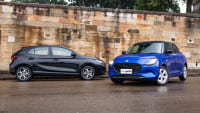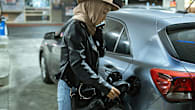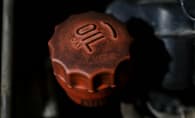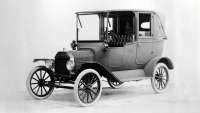BMW's i8 might feature a cutting-edge hybrid powertrain and over-the-top looks to make you think it's a supercar-slaying machine, but the truth is that it's actually a lot tamer than its styling might suggest.
With a low-slung silhouette, and the theatre (and impracticality) of butterfly doors on the coupe, the i8 looks ready to demolish the established supercar big players such as Ferrari and Lamborghini, but in actual fact BMW has prioritised efficiency over performance.
Mounted just behind the driver and passenger is a 170kW/320Nm 1.5-litre turbo-petrol three-cylinder engine that drives the rear wheels, while a 96kW/250Nm electric motor drives the front wheels, giving the BMW i8 all-wheel-drive grip.
The combined output, though, is rated at 266kW/570Nm, meaning the BMW i8 is comparable in power to a Nissan 370Z Nismo or Audi S5, while its torque figure exceeds that of the Mercedes-AMG C43 and Lexus LC500.
With a six-speed automatic transmission in tow, the BMW i8 0-100km/h acceleration can be dispatched in 4.4 seconds - much slower than its contemporaries in a similar price bracket such as the Audi R8 and Mercedes-AMG GT.
Meanwhile, the BMW i8's quarter-mile (0-402m) was in the range of 12.1 seconds to 12.3s, according to independing testing.
The BMW i8 top speed was also limited to 250km/h, much less than the often 300km/h-plus capabilities of supercars at the time.
Without the limiter, though, its hard to tell how fast the BMW i8 will go, but then again it was never designed to be an outright record-setting in pace.
Where the i8 makes up for its lack of straight line performance is with its ultra-efficient fuel economy figure of just 2.1 litres per 100km, largely thanks to its plug-in hybrid powertrain that enables around 40km of all-electric driving range.
That's right, the BMW i8 is also a plug-in, and is actually the world's best-selling plug-in sports car, with more 20,000 sales.
The cars from 2015-2017 featured a battery size of 7.1kWh, which was boosted to 11.6kWh from 2018 for an increased range all-electric driving range of 55km.
The electric motor was also boosted to deliver 105kW with the update, resulting in a new combined total of 275kW/570Nm for the 2018 model, but the BMW i8 acceleration remained steady at 4.4s for the 0-100km/h run.
The BMW i8 maximum speed also remained unchanged at 250km/h after the update.
However, American publication Car and Driver managed to achieve a 0-60mph (97km/h) confirmed time of 4.1s on test, though it was for the convertible version that lacks the two rear seats and sports a folding fabric top.





.jpg)
.jpg)



.jpg)
.jpg)



.jpg)



.jpg)
.jpg)






